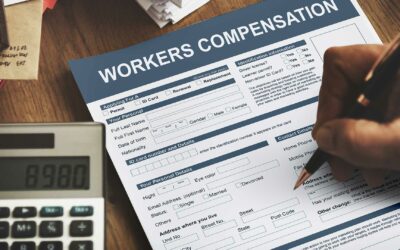Sometimes, a workers’ compensation claim gets denied. But just because it gets denied doesn’t mean you’ve completely run out of options. In the face of a denial, you can use your right to appeal the decision in an attempt to convince a judge to approve your access to those workers’ compensation benefits. But you should be prepared for what that all involves. The process of appealing will be a lengthy one that will involve negotiations over your settlement and likely multiple meetings where you will be expected to testify as you make your case.
Getting a Workers Compensation Lawyer
This is when getting a workers’ compensation lawyer can be absolutely helpful. It can be a real challenge to try taking on the workers’ compensation hearing all on your own. But with a lawyer, you can have a knowledgeable expert assist you in convincing the judge into siding with you and awarding you the compensation that you need. A workers’ compensation lawyer knows the ins and outs of the laws surrounding workers’ compensation, and they can also help you determine what all you will need to present for your case, including the gathering of proper evidence.
The Workers Compensation Hearing Process
Before the actual hearing happens before a workers’ compensation judge, there are some other proceedings that you may need to attend. The two proceedings that you should expect are the mediation process and the pretrial conference:
-
Mediation
This is the phase where you and the insurance company will meet to try negotiating on a settlement, and there will be a neutral and professional third-party there to help as the mediator (hence the name of this process). If you have a workers’ compensation lawyer, they will be here with you as well. This is something of an informal discussion but can potentially lead to a conclusion if a satisfactory negotiation can be made.
-
Pretrial Conference
During this phase, information may be exchanged between the insurance company, their lawyer, and the judge. This may also be another time that a settlement could be negotiated.
Finally, when it comes to the formal hearing, you will need to present your workers’ compensation case to the judge. With a workers’ compensation lawyer, your chances of providing a convincing argument may be improved. At the hearing itself, you can expect there to be at least you, the insurance company’s lawyer, the judge, and your own lawyer if you have hired one. But there may also be witnesses and representatives sent from your job. The insurance company may send other representatives as well.
Depending on who all is involved, you can expect your workers’ compensation hearing to take typically just a few hours, but it can go as long as a few days should it be especially complicated. Due to how there is that potential for an extensive hearing, it is very important to be as prepared as possible for your workers’ compensation hearing.
How to Prepare for Before Your Workers Compensation Hearing
Before reaching the formal hearing stage, it is important to be prepared. Having the assistance of a workers’ compensation lawyer can help you greatly, and the sooner you get one the better. For example, having a workers’ compensation lawyer on your side for the mediation stage can help increase your chances of a successful settlement before the formal hearing even happens. But should the matter seem destined for a formal hearing, you should make sure you have these things prepared:
- Gather and organize all your evidence for a proper presentation including:
- Doctors reports
- Medical records
- Unpaid medical bills
- Employment records
- Reports by witnesses, such as your doctor, fellow colleagues, etc.
- Any evidence of lost wages
- Any other documents regarding your injury
- Prepare any items you may need throughout the day in case the hearing goes for longer:
- Do you have medications that must be brought along?
- Do you have any other daily-use items that you need?
You should consult with your lawyer about possible restrictions on what items you can present to the judge for your case. Depending on your state and its own rules there may be items that you can’t give to the judge. There may also be different rules on the process of getting certain pieces of evidence to be allowed for the hearing.
Testifying
When it is finally time to testify before the judge, you will be expected to describe details such as:
- How you were injured?
- What have you been feeling since you were injured?
- How your injuries have been limiting your ability to work or live?
- What were your job duties, and have you attempted to return to work?
After you’ve answered these questions and more during your cross-examination, the judge will also listen to accounts from witnesses, doctors, and others. But once that is over—it will be the judge’s job to then make a decision. However, the decision might not be made at the end of your hearing. The judge may decide to contemplate on it before finally sending a decision via mail. You can expect the judge to usually send out their decision somewhere in the range of 30 to 90 days.
It should be noted that if the judge should decide against you, you can attempt to appeal the decision. Be prepared by asking your lawyer about your state’s particular appeal process deadlines.
Prepare for Your Workers’ Compensation Hearing with a Featured Workers’ Compensation Lawyer on TopResearched!
Preparation will be key to your success when fighting for your just compensation in court. While you can try taking on the insurance companies alone, your chances become significantly higher with the aid of a medical workers compensation lawyers. You’ve worked hard and you deserve your compensation when you get hurt. Don’t leave anything to chance—check out TopResearched for the absolute best workers compensation lawyers in and around your area, so that you can have the greatest chance possible in court.








